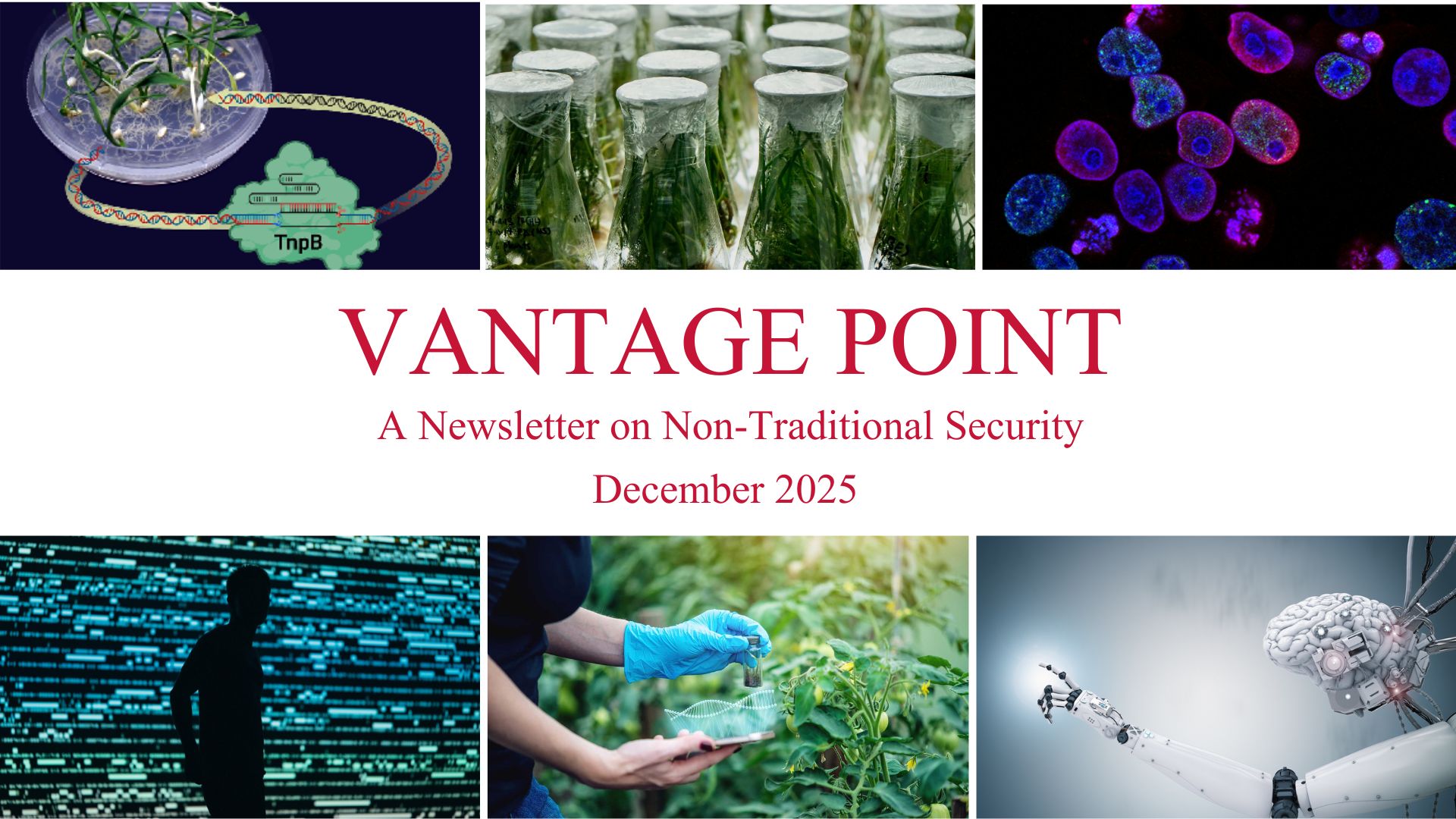Vantage Point Vol. 2 Issue 3: A Newsletter on Non-Traditional Security
Vantage Point Vol. 2 Issue 3: A Newsletter on Non-Traditional Security
Issue Commentary by Dr. Aradhana Talwar | Narratives from the North-East by Pratyush Pran Sarma | Securitising the Human by Malka B | Human Security through Education by N Nithya Shree | Border Security by N.T. Malavika
The third issue of Vantage Point continues its deep dive into non-traditional security challenges facing India today. This edition explores the intersections of digital privacy, wildlife trafficking, water scarcity, indigenous knowledge systems, and border security—each highlighting the evolving nature of threats and the need for inclusive, tech-driven, and culturally rooted responses.
Non-Traditional Security Threats – Digital Data Protection Debate
Dr. Aradhana Talwar discusses the growing importance of digital privacy as a non-traditional security concern. With India among the top five countries affected by data breaches in 2023, the Digital Personal Data Protection Act (2023) and its 2025 Rules aim to address these challenges. The article emphasizes the need for a consent-based framework, digital literacy, and nuanced implementation that considers societal realities, especially around parental consent and digital access.
A Different Type of Trafficking in the North-East: Wildlife at Risk
Pratyush Pran Sarma highlights the rise in wildlife trafficking in the North-Eastern Region (NER), involving species like pangolins, rhinos, and exotic birds. These activities not only threaten biodiversity but are also linked to organized crime and insurgency funding. The article calls for stronger enforcement, rehabilitation of poachers, and community-based conservation efforts to combat this growing threat.
Bengaluru’s Groundwater Emergency
Malka B outlines the critical groundwater crisis in Bengaluru, where extraction rates have reached unsustainable levels. Rapid urbanization, unregulated borewell drilling, and poor water management have led to severe depletion. The article stresses the need for rainwater harvesting, policy enforcement, and community participation to ensure long-term water security.
Indian Knowledge System — India’s Intellectual Heritage
N. Nithya Shree explores how India’s ancient knowledge systems—ranging from mathematics and medicine to yoga and veterinary science—contribute to national identity and soft power. Initiatives by AICTE and the Ministry of AYUSH aim to preserve and promote this heritage. The article argues that integrating traditional knowledge with modern science can strengthen education and diplomacy.
Strengthening India’s Border Security Through Indigenous Technology
N.T. Malavika discusses the importance of self-reliance in border security. With increasing digitalization, India must reduce dependence on foreign technologies by investing in indigenous R&D. The article advocates for AI-driven surveillance, autonomous patrol systems, and robust cybersecurity measures. Public-private partnerships and predictive analytics are seen as key to building a resilient and modern border security framework.











